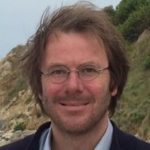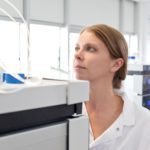Link to Pubmed [PMID] – 34697468
Link to HAL – pasteur-04093037
Link to DOI – 10.1038/s41596-021-00610-5
Nature Protocols, 2021, 16 (11), pp.5220-5249. ⟨10.1038/s41596-021-00610-5⟩
Macropinocytosis refers to the nonselective uptake of extracellular molecules into many different types of eukaryotic cells within large fluid-filled vesicles named macropinosomes. Macropinosomes are relevant for a wide variety of cellular processes, such as antigen sampling in immune cells, homeostasis in the kidney, cell migration or pathogen uptake. Understanding the molecular composition of the different macropinosomes formed during these processes has helped to differentiate their regulations from other endocytic events. Here, we present a magnetic purification protocol that segregates scarce macropinosomes from other endocytic vesicles at a high purity and in a low-cost and unbiased manner. Our protocol takes advantage of moderate-sized magnetic beads of 100 nm in diameter coupled to mass-spectrometry-based proteomic analysis. Passing the cell lysate through a table-top magnet allows the quick retention of the bead-containing macropinosomes. Unlike other cell-fractionation-based methodologies, our protocol minimizes sample loss and production cost without prerequisite knowledge of the macropinosomes and with minimal laboratory experience. We describe a detailed procedure for the isolation of infection-associated macropinosomes during bacterial invasion and the optimization steps to readily adapt it to various studies. The protocol can be performed in 3 d to provide highly purified and enriched macropinosomes for qualitative proteomic composition analysis.




